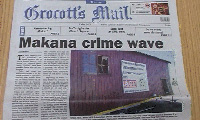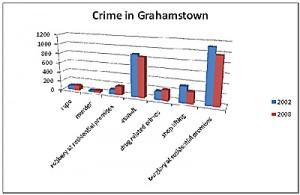 As part of our Critical Media Production course of 2009 we decided to, in our work, take on our Group’s name, Masisebenzisane (Let’s work together) in a literal manner. This translated into a collaborative approach to making a TV doccie in which the ‘subject’ become more than a ‘subject’ – rather a stakeholder in his own story. This was our interpretation of citizen journalism in the sense that we wanted Mzwakhe to be able to tell his story unmediated by us as journalists. In this way, he was able to shape his own story while drawing on our journalistic experience.
As part of our Critical Media Production course of 2009 we decided to, in our work, take on our Group’s name, Masisebenzisane (Let’s work together) in a literal manner. This translated into a collaborative approach to making a TV doccie in which the ‘subject’ become more than a ‘subject’ – rather a stakeholder in his own story. This was our interpretation of citizen journalism in the sense that we wanted Mzwakhe to be able to tell his story unmediated by us as journalists. In this way, he was able to shape his own story while drawing on our journalistic experience.
We didn’t want to simply sweep in as journalists hungry for a story. Instead, we spent a lot of time with him at the Egazini Centre, in his home and his community. We met his parents, his nephews and his friends. We asked him to take on the role of reporter – as you can see in the intro of the final doccie. At the showing of the doccie at the community meeting, at which Mzwakhe was present, he was proud of the piece and felt it truthfuly reflected his story. Other community members commented that it was a good representation of the youth in the Joza community and the role that Egazini plays in keeping the youth off the streets and away from crime.
Watch this short clip of Mzwakhe and his nephews helping us carry our equipment. This is a rite of passage to all journalists.
Watch this clip to see Mzwakhe and Jess, our reporter, taking some time out to get to know each other.
Listen to this sound clip to hear Jess and Mzwakhe discussing how Mzwakhe would like to word his standupper for the beginning of the doccie.





